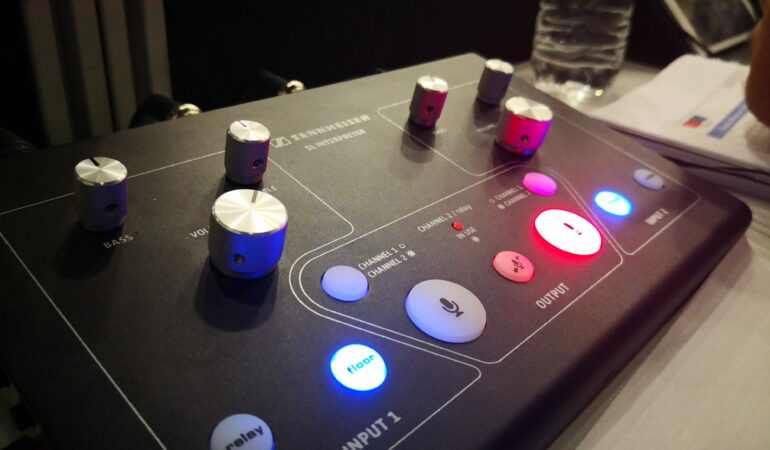
Professional Turkish Interpreter, based in London
Professional Turkish Interpreter, based in London





In the realm of linguistic professions, simultaneous interpreters are celebrated as mental athletes for good reasons. The process of simultaneous interpretation is not merely about understanding a language; it involves complex cognitive challenges that demand a unique set of mental skills. These individuals listen to a speaker in one language and convey the speaker’s exact message in another language in real time, a task that requires extraordinary cognitive agility and concentration.
Understanding the cognitive skills necessary for effective simultaneous interpretation not only underscores the difficulty and professionalism of the task but also provides insight for aspiring interpreters. Below, we delve into the critical cognitive skills that are the hallmarks of successful simultaneous interpreters.
Exceptional Listening and Auditory Processing: Simultaneous interpreters must possess superior listening skills, enabling them to process spoken words quickly. This involves discerning nuanced information, such as tone and speaker intention, under high-pressure situations. The ability to filter out background noise and focus on the speaker’s words is crucial, as is the skill to understand different accents and speech rates.
Superior Working Memory: Working memory plays a pivotal role as interpreters need to retain chunks of information while translating them. This involves holding sentences or phrases in mind, understanding their meaning, and then rendering them into another language, all while continuing to listen to the next statement. A robust working memory allows interpreters to juggle these tasks without losing critical data.
Fast Information Processing: Interpreters must process information quickly and accurately. They analyze grammatical structures, contextual clues, and cultural references, then predict probable sentence conclusions, all in a matter of seconds. This rapid processing power allows them to keep pace with the speaker without significant delay.
Mental Flexibility and Multitasking: Simultaneous interpretation requires mental adaptability and the ability to multitask effectively. Interpreters switch between languages, deal with unexpected terminology or unclear statements, and manage stress and fatigue. They must be comfortable within this realm of uncertainty, rapidly adapting their mental frameworks to align with the fluid dynamics of speech.
Cultural Intelligence and Contextual Judgment: Understanding cultural contexts and subtle language nuances is crucial. Simultaneous interpreters must recognize idiomatic expressions, humor, and cultural references, interpreting not only words but also the intended meaning so that it resonates with the target audience. This skill requires a deep understanding of both source and target cultures.
Concentration and Emotional Regulation: Finally, the ability to maintain intense concentration levels is indispensable. Simultaneous interpreters often work in environments with various distractions. They must navigate these challenges while managing their stress levels and emotional responses. Coping with performance anxiety and maintaining a clear mind enhances the accuracy of interpretation.
Simultaneous interpretation is a cognitive high-wire act that demands a constellation of sophisticated mental skills. The profession welcomes individuals ready to embrace its challenges, rewarding them with a career that celebrates continuous learning, cultural exchange, and human connection. For those aspiring to this path, understanding and nurturing these cognitive abilities is as crucial as mastering the languages themselves. Whether innate or honed through dedicated practice, these skills are the bedrock upon which a successful interpreting career is built.
If you are looking for an experienced Turkish interpreter in the UK, then feel free to contact me.
You can count on my services not just as a Turkish interpreter but also as a reliable part of your team who will work for the success of your organisation.